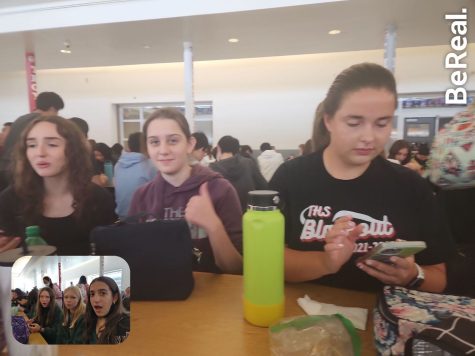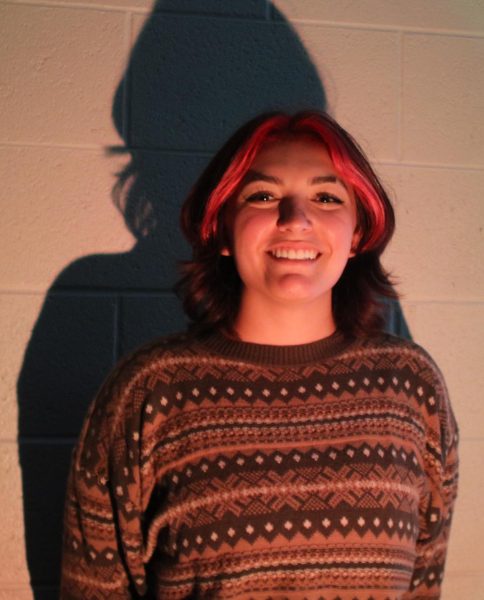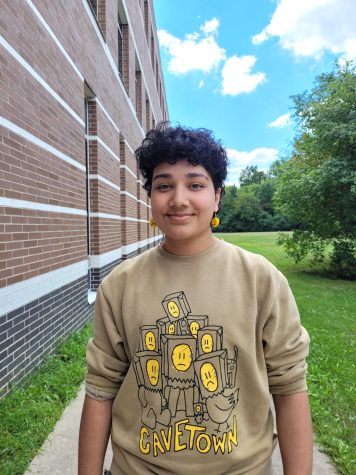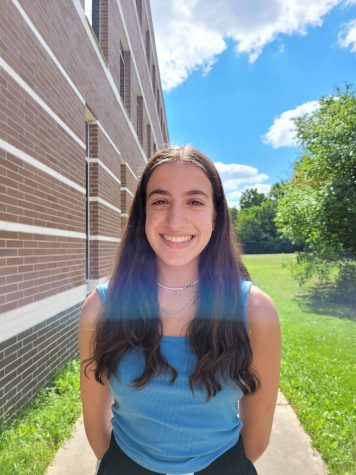BFFR
BeReal is on our phones and in our minds, but how real is BeReal?
What began as a fun pastime on a few college campuses has proceeded to take the world by storm in merely a few months. In early 2022, BeReal swept French university campuses before crossing the pond to make its way onto the phones of American college students. Now, almost 60 percent of Troy High students have downloaded this new anti-Instagram social media app.

The idea behind BeReal is to eliminate the overedited, highlights-only culture that exists on almost every other social media platform. Users are given a random, two-minute increment per day to post a picture using their front and back cameras. Things such as posting late or retaking pictures are allowed, but your post will be branded with a message stating the ways in which you haven’t ‘been real.’
This new, trendy app was appealing to many people, especially teens.
Junior Patrick Mahoney said his initial reasons for downloading the app were, “I had a lot of friends that downloaded it and I really didn’t want to miss out.”
What started as a fun, candid app has slowly become the exact thing it was trying to avoid. People post late because they’re waiting until they’re doing something interesting, or they’ll do things such as change their shirt or fix their hair before they post what was supposed to be the complete, honest truth.
English teacher Emily Rusk said, “It became another app where I get to pick what I send to people and it’s not really authentic.”
Despite this lack of authenticity from the majority of the app’s users, some people don’t mind, or simply don’t care.
Junior Allison Giroux said, “I know people are being fake, but I don’t care.” In this way, the app truly has begun to take the form of any other posed social media platform where users know the posts they see aren’t completely real, but they don’t seem to mind. It’s completely contradictory to the original goal of the app.
But if an app quite literally called “BeReal” is not being used for ‘being real,’ what is ‘being real,’ really?
Freshman Audrey Hamilton defines ‘being real’ as “showing your true self and not having to feel like you have to fit an expectation.” This is a commonly shared view among users, despite the fact that it is no longer practiced the way the app intended.
It’s not all bad, though. The app’s ground fundamentals still hold up and provide a great experience for its users.
Mahoney said, “There’s a bit of a comradery in it because last night I posted my BeReal at 8 o’clock, and I was going through like, ‘What’s everyone else doing at 8?’”
Ultimately, the app has managed to make its way onto phones all across the world, including many here at Troy High. While its intentions are pure, previous attempts by other anti-Instagram apps show that online users can never truly be real.
Rusk put it best when she said, “Social media is a toxic place to be, so it’s refreshing that there’s an effort to push past that. I just don’t know if we’re at that point yet.”
Your donation will support the student journalists of Troy High School - MI. Your contribution will allow us to print our work, purchase equipment and cover our annual website hosting costs.




